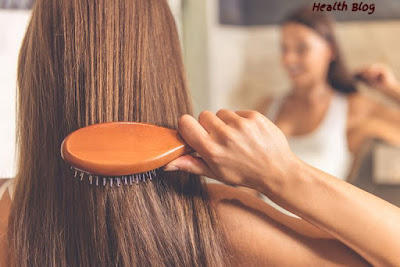Obesity can affect hair loss
Experimental experts have cited the cause of hair thinning due to flirting.
The results of the study were published in the journal Nature. In mice they form stem cells inside the hair follicles, which are treated with a standard diet different from those found in mice.
Signs of firing in stem cells lead to these differences, sometimes leading to thinning and loss of hair. This fascinating data sheds light on the complex link between physiology and dysfunction.
It is well known that corpuscles are associated with the development of Senna disease in humans. Heart disease, diabetes and other insects are very common in dead objects. Despite this, it is not entirely clear how body parts in particular degenerate and lose function from the breed-in - carpulence.
In a recent study, an experimental team from Tokyo Medical and Dental University (TMDU) used mouse model experiments to examine how high- diet or genetically modified hair is thinning. Can occur and affect damage.
The authors explain hair follicle stem cells (HFSCs) by inducing certain burn signals to prevent depression, hair follicle rejuvenation and sometimes hair follicle damage. May be the cause.
Generally, HFSCs restore each hair follicle cycle. It is part of the process that allows our hair to grow back continuously. As humans age, HFSCs fail to replenish themselves, which reduces HFSCs and thus leads to thinning hair.
Despite the progressive risk of androgenetic alopecia for Roly-Poly people, whether purity accelerates hair thinning, and how molecular mechanisms are largely unknown. The purpose of the TMDU group is to deal with those questions and certain mechanisms.
"High - diet feeding, especially in older mice, accelerates hair thinning by reducing HFSCs that replenish hair-growing mature cells. We recognize the future of HFSCs, "said Hironobu Morena, lead author of the study.
Researchers have found that obesity is the cause of thinning hair.
The results of the study were published in the journal Nature. They introduced that the stem cells in the hair follicles of mice were high - The diet was maintained differently to the rats that provided the standard food.
These differences lead to narcotic signals in the stem cells, which sometimes respond to thinning and shedding of hair. This fascinating data sheds light on the complex link between muscle and dysfunction.
Advertising
Everyone knows that fat is associated with muscle cravings in humans. Heartburn, diabetes and other affections are common in blueberry organisms. However, it is not entirely clear how body parts in particular degenerate and lose function from breed-in - fat.
In a recent study, an experimental team from Tokyo Medical and Dental University (TMDU) used mouse model articles to point out that high- diet or genetically caused fat can lead to thinning hair. Can occur and affect damage.
The authors begin by saying that adipose hair follicle stem cells (HFSCs) can be reduced by inducing certain inflammatory signals, preventing hair reuse and sometimes redundancy in hair follicle damage. .
Advertising
In general, HFSC tones- restore every hair follicle cycle. It is part of the process that allows our hair to grow back continuously. As in humans, HFSCs fail to replenish themselves, leading to most HFSCs and therefore thinning hair.
Although round people have a sophisticated problem of androgenetic alopecia, whether or not alopecia accelerates hair thinning, and molecular mechanisms are largely unknown. The purpose of the TMDU group is to deal with those questions and certain mechanisms.
"High - diet feeding, especially in older mice, accelerates hair thinning by reducing HFSCs that replenish hair-growing mature cells. We recognize the future of HFSCs, "said Hironobu Morena, lead author of the study.
Information
"HFSCs in HFD-fed obese mice secrete sebum after activating them in the skin shell, turning their function into" corneocytes "or" sebocytes. " With consecutive days of feeding, HFSCs show signs of increased oxidative stress and epidermal dissociation, ”said Morena.
"Genetic expression in HFSCs from high - feed mice indicates activation of sedative cytokine signaling in HFSCs. Sedative signals in HFSCs suppress sonic hedgehog signaling crucial in hair follicle regrowth in HFSCs." Plays the position, "explained longtime writer Amy Kay Nishimura.
The researchers argue that activation of the sonic hedgehog signaling pathway in this process leads to HFSC attenuation.
"It prevents hair loss from being taken through a high diet," Nishimura said.
This study arrests specific cellular function changes and new confusion in Epkin dysfunction, which can occur after a high - diet or genetically rational flirtation and thinning hair. And can open the door for healing. Bubbly diseases.









No comments: